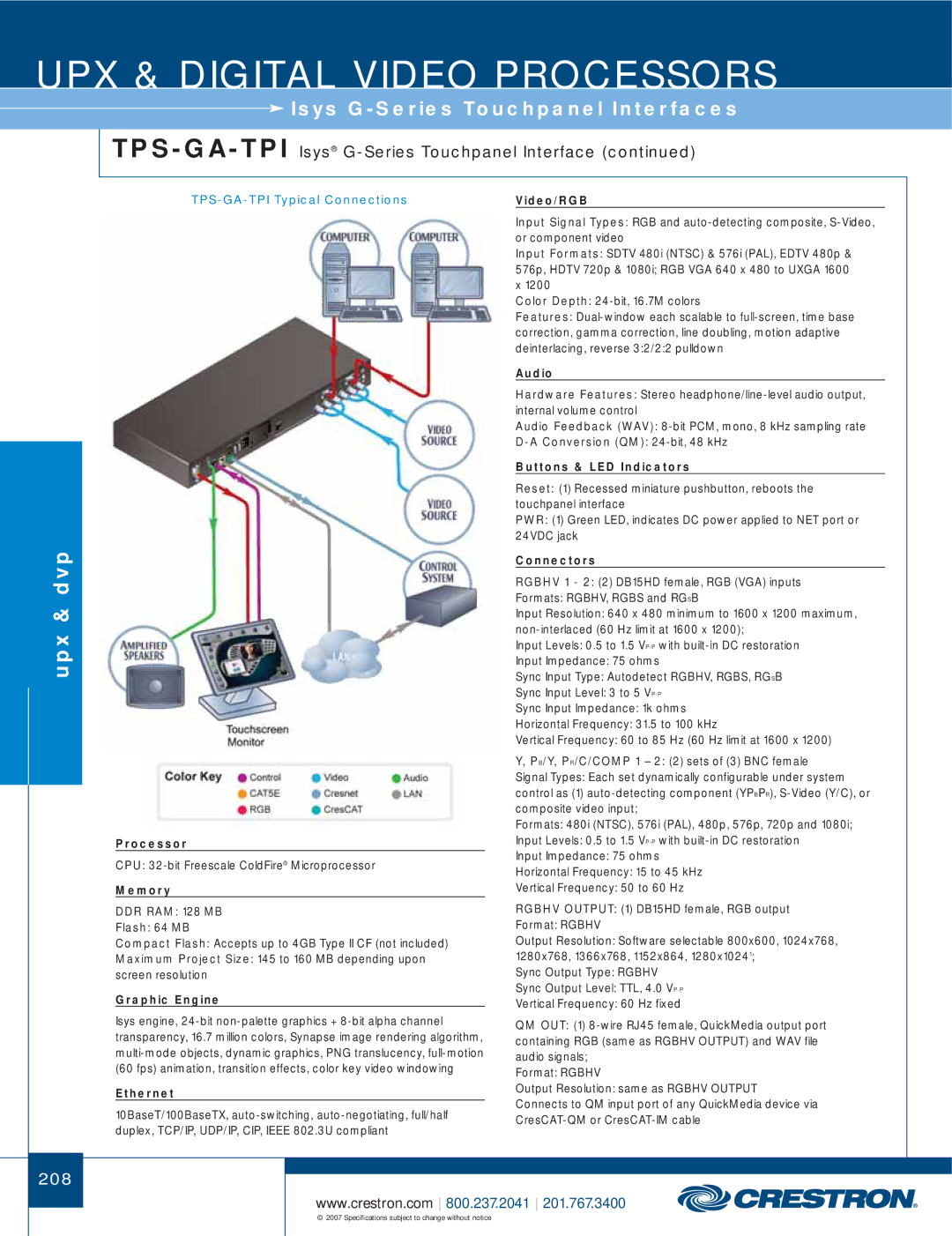UPX-2, DTT-17 specifications
Crestron, a leader in advanced control and automation systems, has consistently pushed the boundaries of technology, especially with products like the DTT-17 and UPX-2. Both devices are integral components designed for seamless integration and exemplary performance in commercial and residential environments.The Crestron DTT-17 is a powerful 17-inch touchscreen display that serves as an interactive interface for controlling various aspects of a facility or home automation system. One of its standout features is its high-resolution display, which provides sharp, vibrant visuals, making it easy for users to navigate through menus and monitor system status. The DTT-17 also incorporates capacitive touch technology, enabling fast, responsive interactions. It can be mounted on a wall or placed on a desktop, offering flexibility in installation.
A significant aspect of the DTT-17 is its customization capability. Crestron provides a robust development platform, allowing users to tailor the interface according to specific needs. This feature supports various control functions, from lighting and HVAC systems to AV resources and security. Moreover, the device is equipped with built-in security features to ensure data protection while controlling sensitive systems.
On the other hand, the Crestron UPX-2 is a versatile media presentation environment controller designed to streamline AV setups in conference rooms or educational spaces. Its main appeal lies in its ability to integrate multiple AV sources seamlessly, providing a user-friendly experience. The UPX-2 supports various input formats, including HDMI, VGA, and audio, allowing for a flexible multimedia management solution.
One notable characteristic of the UPX-2 is its capability for auto-switching functions, whereby the device intelligently detects the active source and routes it to the display without manual intervention. This function significantly enhances workflow in meetings, minimizing interruptions and maximizing productivity. Additionally, the UPX-2 can be paired with the Crestron Homeseer software for enhanced control, allowing users to manage and monitor their AV environments dynamically.
In summary, the Crestron DTT-17 and UPX-2 exemplify advanced technology designed for effective control and automation in varying environments. Their high-resolution displays, customizable features, and integration capabilities make them ideal for those seeking sophisticated solutions for home or commercial setups. With Crestron's commitment to innovation, users can expect these devices to meet and exceed their automation and control needs, enhancing the overall user experience.

